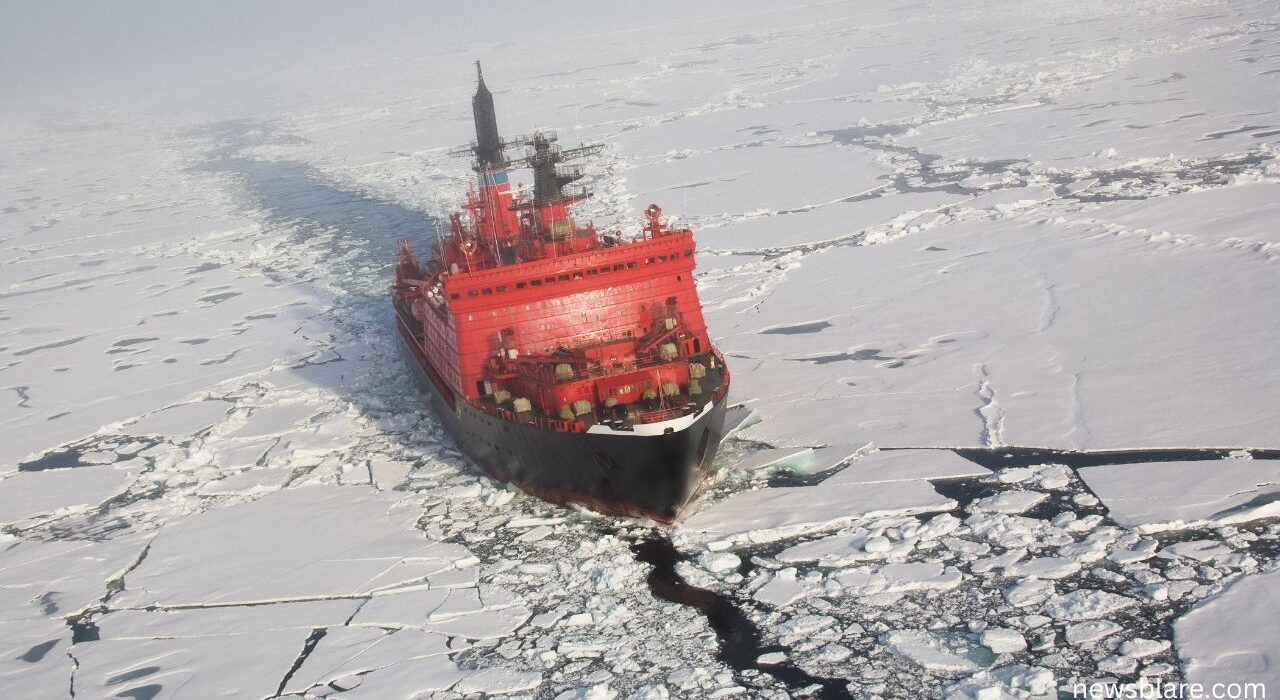In a surprising development, Russia chooses India to build non-nuclear icebreakers for Northern Sea Route development. Sidelining the tech-giant China, Russia has prioritized collaboration with India on this project. That would further deepen both countries’ relationships and place it on a very prominent platform in Arctic affairs.
The Indian government is in talks for this project with two shipbuilding companies, one belonging to the government, and the other a private one. These four icebreakers will cost over $750 million. In addition to supporting Russia’s nuclear energy company, ROSATOM, it is also scouting for shipyards in India.
Russia to Build Non-Nuclear Icebreakers with India, Not China, Confirmed Minister
In 2023, Russia reported on the plans it discussed with India to build non-nuclear icebreakers. The Russian minister confirmed these talks, Alexey Chekunkov. Talks were held after a delegation of Indian businesses visited the Eastern Economic Forum in Vladivostok. Russia and India will develop the Russian Arctic together. They will be working out a major transportation center, the Northern Sea Route.
The Northern Sea Route is faster than the Suez Canal route from North Europe to East Asia. Russia intends to transport 150 million tonnes of oil, coal, and LNG via this route by 2030. This will require using more than 50 icebreakers, ice-class ships, new ports, terminals, and emergency response vessels.
Prime Ministers of Both Countries Meet Over the Deal
As Russia chooses India to build non-nuclear icebreakers and cooperation in the shipbuilding sector, Indian Prime Minister Narendra Modi met Russian President Vladimir Putin in July 2024. This cooperation is entrusted to the joint working body established under the IRIGC-TEC. On the North Sea Route from Murmansk to the Bering Strait, ROSATOM continues developing it in cooperation with the Indian side. ROSATOM plans to close an order of four non-nuclear icebreakers with India. The same MOU awaits consideration in shipbuilding, ship repairs, and on-site training of Indian mariners working in polar waters.
Russia’s Direct Investment Fund (RDIF) and Enso Group of India have joined hands to send shipments worth $225 million. With sanctions, the options in European ports are off-limits; Chinese, Korean, and Japanese yards are fully booked till 2028. Russia regards India as a trustworthy ally with friendly relations for centuries. A Russian delegation called on Indian shipyards to assess its infrastructure and capacity. One concern, however, is sourcing steel and engines needed for icebreakers.
This is a tremendous achievement in Russia-India relations and the Indian shipbuilding industry. Russia is pushing forward Arctic route initiatives with both India and China. The Arctic Express Route, a Russian-Chinese joint venture, began in July 2024. It would be the shortest connection from the Pacific Ocean to the Atlantic through the Arctic.
China draws advantage in developing the Northern Sea Route as part of its Belt and Road Initiative. Russia would like to achieve an optimal balance in terms of relations with both India and China in the Arctic. This balance is part of the larger strategy by Russia to respond to Western sanctions placed on it.
Also, see: India emerges as second-largest supplier of restricted critical technologies to Russia

1 Comment